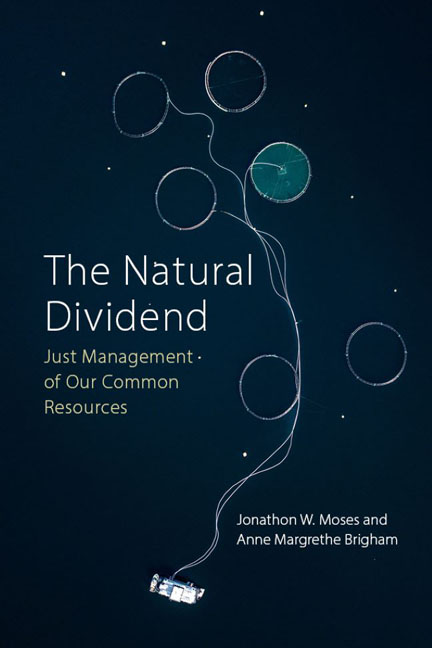Book contents
- Frontmatter
- Dedication
- Contents
- Acknowledgements
- Abbreviations
- 1 Introduction
- 2 Who owns the sun?
- 3 The Natural Dividend
- 4 The earth: the market for land
- 5 The sea: the market for salmon
- 6 The sky above: the market for renewable energy
- 7 The earth beneath: the market for fossil and mineral resources
- 8 A common market? The market for global resources
- 9 Conclusion
- References
- Index
7 - The earth beneath: the market for fossil and mineral resources
Published online by Cambridge University Press: 20 January 2024
- Frontmatter
- Dedication
- Contents
- Acknowledgements
- Abbreviations
- 1 Introduction
- 2 Who owns the sun?
- 3 The Natural Dividend
- 4 The earth: the market for land
- 5 The sea: the market for salmon
- 6 The sky above: the market for renewable energy
- 7 The earth beneath: the market for fossil and mineral resources
- 8 A common market? The market for global resources
- 9 Conclusion
- References
- Index
Summary
The world's largest Natural Dividends are generated in the markets for subsurface fossil and mineral resources. Given our lengthy and insatiable appetite for coal, gas, oil and precious minerals/metals, the Natural Dividends associated with these resources have been phenomenally large, drawing the attention of investors, governments and academics alike.
Consequently, it should not surprise us to find that these resources seem to be the most difficult to manage from a political perspective. Their markets have the capacity to generate unimaginable wealth, but most of the wealth never makes it back to the community. Instead, these Natural Dividends have been pocketed by corrupt political authorities and/or the subcontractors used to secure the resource. It is not without reason that Venezuela's former oil minister, Juan Pablo Pérez Alfonzo, spoke of oil as “the devil's excrement” (Starr 2007), and the UN secretary-general, António Guterres, feels the need to warn us of the extractive industry's “… litany of ills – corruption, exploitation, colonialism and racism; environmental degradation, worsening climate change and biodiversity loss; armed conflict, gender-based violence, population displacement, cultural harm and human rights violations” (Guterres 2021).
Some of these markets are destined to dry up. There is, after all, significant pressure on countries and companies to move away from fossil fuels and into more renewable forms of energy. But many of these new replacement resources are also located underground. For example, recent advances in subsurface technologies promise access to new sources of renewable geothermal energy from conventional hydrothermal and enhanced geothermal systems (US Department of Energy 2017). Existing technologies can already create subsurface reservoirs that offer safe storage capacity for carbon dioxide (CO2) and opportunities for the environmentally-responsible management and disposal of hazardous materials and other energy waste streams. Deep-drilling experiments have revealed a new terrestrial biosphere that “harbors a significant fraction of the total microbial biomass of the planet” (Puente-Sánchez et al. 2018), offering much work (and new markets) for bioprospectors. Further off on the temporal horizon we expect to find physicists, geologists and entrepreneurs working together to tap the potential energy unleashed by the shifting tectonic plates beneath our feet.
- Type
- Chapter
- Information
- The Natural DividendJust Management of our Common Resources, pp. 173 - 198Publisher: Agenda PublishingPrint publication year: 2023



